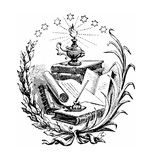
On Being, Politics & the Ultimate Things
WHERE "RIGHTS" LANGUAGE GOES WRONG
“The moral life is the nexus for our involvement in the drama of good and evil that is greater than ourselves.”
“The only way the transcendent can be present within time is through the person who is transcendent, Jesus Christ. Only a person can access the transcendent for only a person is beyond all that is, but to be the transcendent in history the person must be identical with the transcendent as such. He must be God. This is the uniqueness of Christ that makes unmistakably clear the impossibility of anything else representing the transcendent. History cannot reach its end within time and therefore must point to an end beyond it.” — David Walsh, Politics of the Person as the Politics of Being
Though I had a digital version of David Walsh’s new book, Politics of the Person as the Politics of Being (2015), I did not read it carefully until I had a hard copy. It took me over a month to read this remarkable book. It is not that Walsh is not a good and memorable writer; it is that he is precisely both. Almost every page contains passages and considerations that took me back to almost everything I had ever read before. To wit, three random examples:
– “We are called upon to give without asking why and, in that, is brought to light the extent to which all giving is made possible by such self-forgetfulness.”
– “A Creator who discloses himself completely to his creatures would overwhelm them, depriving them of their freedom and absorbing them again into himself. It would betoken a deficiency of love within the Creator, which is impossible.”
– “Persons are united through sacrifice, which is the only means by which they can hold on to one another as persons.”
You May Also Enjoy
OSV can't even take a stand against the sleaze of contemporary culture?
Don’t Give Up on the Death Struggle... A Feckless Response to Recurring Crises... A Thwarter of Honest Confrontation... God’s Plan... Disputable “Facts”... more
Review of Disembodying Women: Perspectives on Pregnancy and the Unborn

